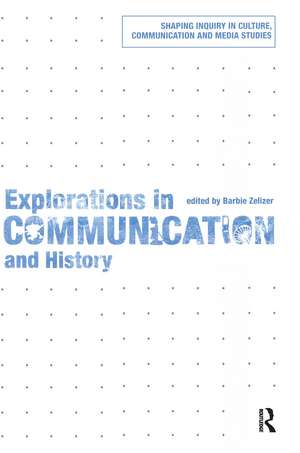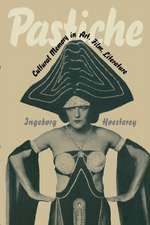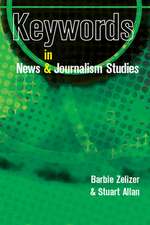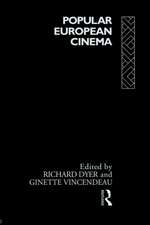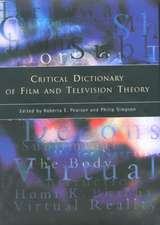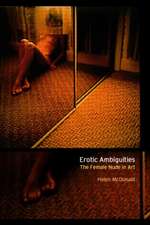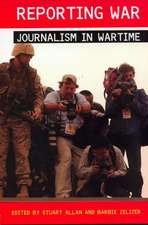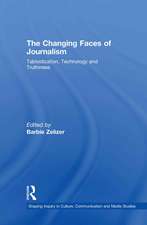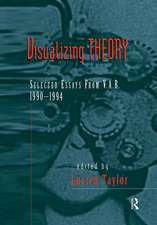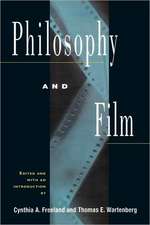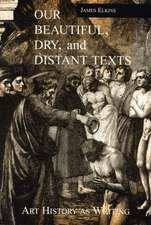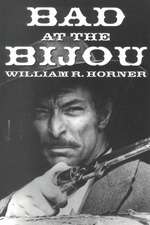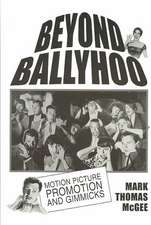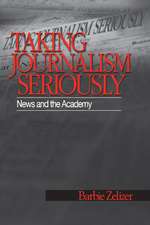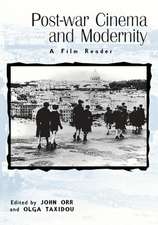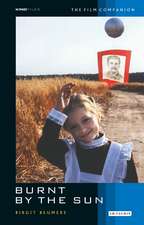Explorations in Communication and History: Shaping Inquiry in Culture, Communication and Media Studies
Editat de Barbie Zelizeren Limba Engleză Paperback – 22 oct 2008
Explorations in Communication and History addresses the link between what we know and how we know it by tracking the intersection of communication and history. Asking how each discipline has enhanced and hindered our understanding of the other, the book considers what happens to what we know when disciplines engage.
Through a critical collection of essays written by top scholars in the field, the book addresses the engagement of communication and history as it applies to the study of technology, audiences and journalism. A comprehensive introduction by Barbie Zelizer contextualises these debates and makes a case for the importance of disciplinary engagement for teaching as well as research in media and cultural studies and each section has a brief introduction to contextualise the essays and highlight the issues they raise, making this an invaluable collection for students and scholars alike.
| Toate formatele și edițiile | Preț | Express |
|---|---|---|
| Paperback (1) | 352.33 lei 6-8 săpt. | |
| Taylor & Francis – 22 oct 2008 | 352.33 lei 6-8 săpt. | |
| Hardback (1) | 1005.39 lei 6-8 săpt. | |
| Taylor & Francis – 22 oct 2008 | 1005.39 lei 6-8 săpt. |
Preț: 352.33 lei
Nou
Puncte Express: 528
Preț estimativ în valută:
67.43€ • 73.22$ • 56.64£
67.43€ • 73.22$ • 56.64£
Carte tipărită la comandă
Livrare economică 22 aprilie-06 mai
Preluare comenzi: 021 569.72.76
Specificații
ISBN-13: 9780415777346
ISBN-10: 0415777348
Pagini: 240
Dimensiuni: 156 x 234 x 15 mm
Greutate: 0.36 kg
Ediția:New.
Editura: Taylor & Francis
Colecția Routledge
Seria Shaping Inquiry in Culture, Communication and Media Studies
Locul publicării:Oxford, United Kingdom
ISBN-10: 0415777348
Pagini: 240
Dimensiuni: 156 x 234 x 15 mm
Greutate: 0.36 kg
Ediția:New.
Editura: Taylor & Francis
Colecția Routledge
Seria Shaping Inquiry in Culture, Communication and Media Studies
Locul publicării:Oxford, United Kingdom
Public țintă
UndergraduateCuprins
Introduction: When Disciplines Engage Barbie Zelizer Overview: Communication and History Introduction: Communication and History Josh Lauer 1. History as a Communication Problem John Durham Peters 2. Democratic Theory and the History of Communications Paul Starr 3. Narrating Media History James Curran Audiences Introduction: Audiences, Communication and History Jennifer Ruth Horner 4. Does Textual Analysis Tell Us Anything About Past Audiences? Susan J. Douglas 5. The Citizen Audience: Crowds, Publics and Individuals Richard Butsch 6. Seeking the Historical Audience: Interdisciplinary Lessons in the Recovery of Media Practices S. Elizabeth Bird Technology Introduction: Technology, Communication and History Deborah Lubken 7. Printing and the Writing Revolution Peter Stallybrass 8. Governing by Television Anna McCarthy 9. Newswork, Technology and Cultural Form, 1837-1920 John Nerone Journalism Introduction: Journalism, Communication and History Nicole Maurantonio 10. The History of Journalism and the History of the Book David Paul Nord 11. Public Spheres, Imagined Communities and the Underdeveloped Historical Understanding of Journalism Michael Schudson 12. The New Political Economy and the Rethinking of Journalism History Robert McChesney
Notă biografică
Barbie Zelizer is the Raymond Williams Professor of Communication and Director of the Scholars Program in Culture and Communication at the University of Pennsylvania's Annenberg School for Communication. A former journalist, Zelizer is known for her work in the area of journalism, culture, memory and images, particularly in times of crisis. Previous publications include Reporting War: Journalism in Wartime (2004) and Journalism After September 11 (2002) (both co-edited with Stuart Allan).
Descriere
Explorations in Communication and History addresses the link between what we know and how we know it by tracking the intersection of communication and history. Asking how each discipline has enhanced and hindered our understanding of the other, the book considers what happens to what we know when disciplines engage.
